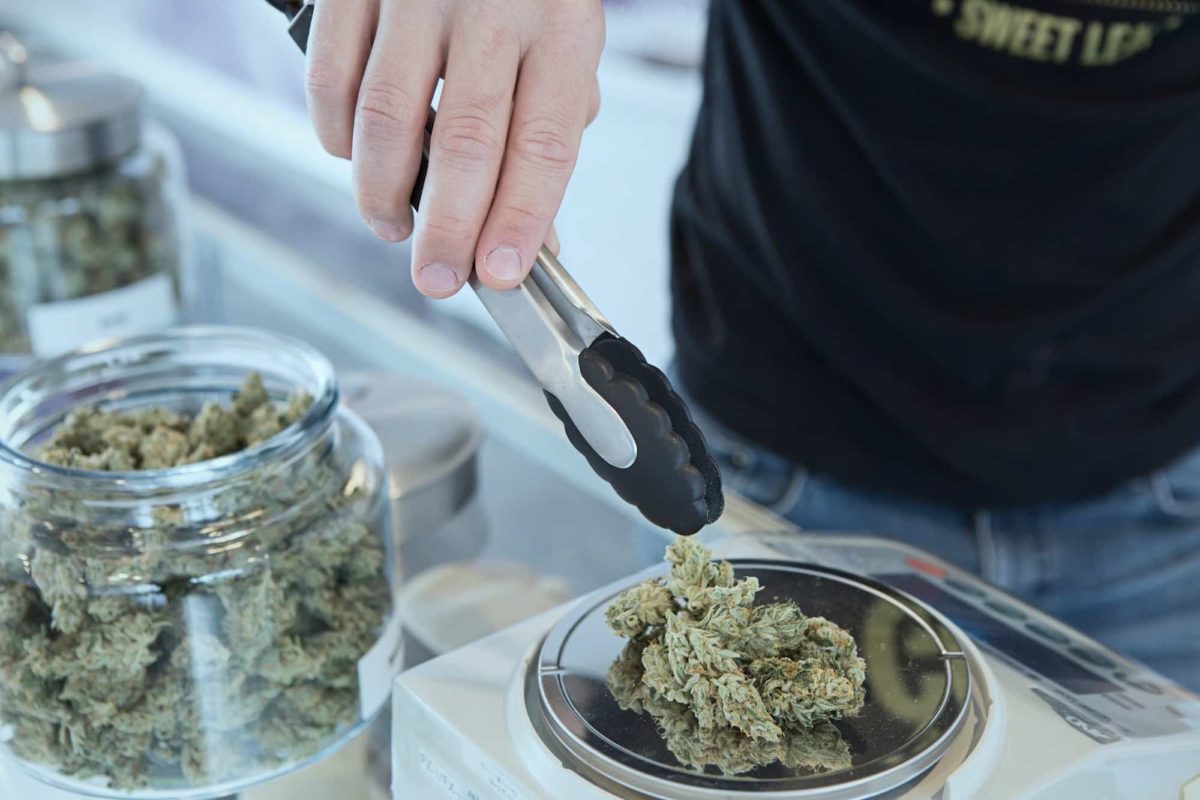Deli Versus Package States: What’s the Difference and Why It Can Matter During Times of COVID-19

Around the world, people are urged to stay at home and social distance to help prevent the spread of this deadly respiratory disease called COVID-19. Laws and ordinances governing when and why one should leave their home have swept nations and are said to have helped protect millions from infection. However, beyond social distancing and safer-at-home orders, some credit essential workers as a large part of the spread of infection. So, what are the differences between cannabis deli versus package states and do they matter?
Cannabis an Essential During COVID
Leaving the house for groceries, medicine, a trip to the ER, or in some states with legalized cannabis, to get weed, are deemed essential trips under these national and state-regulated guidelines. A landmark distinction for the once-criminalized medicinal and recreational substance, one may wonder if the public-health crisis will contribute to a larger conversation around the necessity of cannabis, especially for medicinal patients.
Deli Versus Package States
Even preceding COVID, legal cannabis is sold in one of two ways, from an in-house, “deli” dispensary, or from a taxed establishment required to sell pre-packaged cannabis referred to as a “package” facility. This distinction lay with the legal and regulatory process and varies across state lines.
Deli states are permitted to distribute and package cannabis products on site. Portland, for instance, is one of only a few “deli” states to weigh out cannabis per order, deli-style. In dispensaries, budtenders present jars or canisters, allowing a consumer to inspect and smell cannabis prior to purchase. The People’s Dispensary in Portland, for instance, says that while they’re a deli state, they no longer permit customers to handle or smell the product. “Now, we pre-package every order behind a plexiglass divider, and we’ve implemented contactless interactions with all customers,” said Christine De La Rosa, CEO and Co-Founder of The People’s Dispensary.
“Package” states like California, Colorado and Washington require that cannabis be inspected and pre-packaged at a separate, third-party location before arriving at the dispensary for sale to consumers. While the latter is the result of legislation designed to protect consumers post-prohibition, some say that post-COVID-19, it can actually do the opposite.
Cannabis Packaging in the COVID-19 Era
Many cannabis packaging laws were designed to ensure that packaging is child-resistant, properly labeled, and in states like California, must not make any medical claims or include designs deemed attractive to children. Sounds amazing, right? In times of COVID-19, social distancing, and the threat of bacteria transmitted through cross-contamination, it might not be that amazing after all.
How’s that saying go again? Too many cooks in the kitchen? With regulatory hoops still in place post-COVID, some retailers say that can leave cannabis consumers and essential workers vulnerable to the deadly respiratory disease. With more hands comes more potential for contamination.
Responsibility to Employee’s and Consumer’s
With great power comes great responsibility says some dispensary owners. “Being deemed an essential business is a big move in our industry and with that comes a certain responsibility,” said Kimberly Cargile, CEO of A Therapeutic Alternative, a Sacramento-based dispensary operating under “package” state regulations.
“I recently toured packaging facilities here in California, not in Sacramento, but in other cities, and I saw some things that just weren’t OK,” Cargile told Shannon DeGrooms for CannaCon. Kimberly went on to explain the importance and need for “owners, shareholders, and board members to realize that this is a responsibility that must be taken more seriously.”
“We need to take care of our employees. We need to show people and lawmakers that we’re doing the right thing,” said Cargile, whose dispensary is providing workers with an additional 20 percent of hazard pay on top of their regular pay for putting their lives on the line.
Going Forward
At A Therapeutic Alternative, three new positions were created to ensure quality control and extended safety precautions.
“We have someone covering expedited sales, curbside pickups, and to handle all incoming phone calls and customer inquires.”
They also implemented a number of Extra protocols when it comes to sanitation: removed cloth furniture, sample jars, handheld menus, and i-pad menus, and added UV light sanitization, in addition to masks and gloves.
With COVID and stay-at-home orders, cannabis sales have seen a massive spike throughout the country. This could imply that more Americans are changing their minds on cannabis, or that U.S. cannasseurs are stockpiling. Regardless, like some restaurants and delivery services, the cannabis industry doesn’t seem to be struggling financially during the pandemic, and deli and package cannabis establishments are both addressing the safety of their patrons in a post-COVID world. Hopefully, more dispensaries and supply chain operators see the health risks and follow Cargile’s lead on providing hazard pay.
